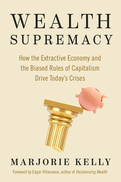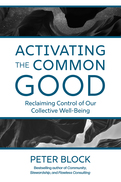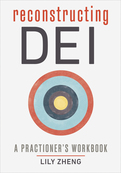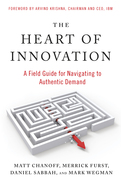Wealth Supremacy
How the Extractive Economy and the Biased Rules of Capitalism Drive Today's Crises
Marjorie Kelly (Author) | Edgar Villanueva (Foreword by) | Tiffany Williams (Narrated by)
Publication date: 09/12/2023
This powerful analysis explains how the bias toward wealth that is woven into the very fabric of American capitalism is damaging people, the economy, and the planet and explores what the foundations of a new economy could be.
This bold manifesto exposes seven myths underlying wealth supremacy—the bias that institutionalizes infinite extraction of wealth by and for the wealthy and is the hidden force behind economic injustice, the climate crisis, and so many other problems of our day:
The Myth of Maximizing—No amount of wealth is ever enough.
The Myth of Fiduciary Duty—Corporate managers' most sacred duty is to expand capital.
The Myth of Corporate Governance—Corporate membership must be reserved for capital alone.
The Myth of the Income Statement—Income to capital must always be increased, while income to labor must always be decreased.
The Myth of Materiality—Profit—that is, material gain-alone is real, while social and environmental damages are not.
The Myth of Takings—The first duty of government must be the protection of private property.
The Myth of the Free Market—There should be no limits on the sphere of influence of corporations and capital.
Kelly argues instead for the democratization of ownership: public ownership of vital services, worker-owned businesses, and more. And she sketches the outlines of a nonextractive capitalism that would be subordinate to the public interest. This is an ambitious reimagining of the very foundations of our economy and society.
This bold manifesto exposes seven myths underlying wealth supremacy—the bias that institutionalizes infinite extraction of wealth by and for the wealthy and is the hidden force behind economic injustice, the climate crisis, and so many other problems of our day:
The Myth of Maximizing—No amount of wealth is ever enough.
The Myth of Fiduciary Duty—Corporate managers' most sacred duty is to expand capital.
The Myth of Corporate Governance—Corporate membership must be reserved for capital alone.
The Myth of the Income Statement—Income to capital must always be increased, while income to labor must always be decreased.
The Myth of Materiality—Profit—that is, material gain-alone is real, while social and environmental damages are not.
The Myth of Takings—The first duty of government must be the protection of private property.
The Myth of the Free Market—There should be no limits on the sphere of influence of corporations and capital.
Kelly argues instead for the democratization of ownership: public ownership of vital services, worker-owned businesses, and more. And she sketches the outlines of a nonextractive capitalism that would be subordinate to the public interest. This is an ambitious reimagining of the very foundations of our economy and society.
Formats
Paperback - $22.95 - Members: $20.66
Paperback - $22.95 - Members: $20.66
PDF eBook - $22.95 - Members: $16.07
ePub - $22.95 - Members: $16.07
Audio Book - $22.95 - Members: $16.07
Find out more about our Bulk Buyer Program
- 10-49: 20% discount
- 50-99: 35% discount
- 100-999: 38% discount
- 1000-1999: 40% discount
- 2000+ Contact Leslie Davis ( [email protected] )
Orders of 10+ copies shipping to one address receive free ground shipping
within the U.S. Shipping to separate individual addresses via USPS media mail will be applied a handling fee:
Book Details
Overview
This powerful analysis explains how the bias toward wealth that is woven into the very fabric of American capitalism is damaging people, the economy, and the planet and explores what the foundations of a new economy could be.
This bold manifesto exposes seven myths underlying wealth supremacy—the bias that institutionalizes infinite extraction of wealth by and for the wealthy and is the hidden force behind economic injustice, the climate crisis, and so many other problems of our day:
The Myth of Maximizing—No amount of wealth is ever enough.
The Myth of Fiduciary Duty—Corporate managers' most sacred duty is to expand capital.
The Myth of Corporate Governance—Corporate membership must be reserved for capital alone.
The Myth of the Income Statement—Income to capital must always be increased, while income to labor must always be decreased.
The Myth of Materiality—Profit—that is, material gain-alone is real, while social and environmental damages are not.
The Myth of Takings—The first duty of government must be the protection of private property.
The Myth of the Free Market—There should be no limits on the sphere of influence of corporations and capital.
Kelly argues instead for the democratization of ownership: public ownership of vital services, worker-owned businesses, and more. And she sketches the outlines of a nonextractive capitalism that would be subordinate to the public interest. This is an ambitious reimagining of the very foundations of our economy and society.
This bold manifesto exposes seven myths underlying wealth supremacy—the bias that institutionalizes infinite extraction of wealth by and for the wealthy and is the hidden force behind economic injustice, the climate crisis, and so many other problems of our day:
The Myth of Maximizing—No amount of wealth is ever enough.
The Myth of Fiduciary Duty—Corporate managers' most sacred duty is to expand capital.
The Myth of Corporate Governance—Corporate membership must be reserved for capital alone.
The Myth of the Income Statement—Income to capital must always be increased, while income to labor must always be decreased.
The Myth of Materiality—Profit—that is, material gain-alone is real, while social and environmental damages are not.
The Myth of Takings—The first duty of government must be the protection of private property.
The Myth of the Free Market—There should be no limits on the sphere of influence of corporations and capital.
Kelly argues instead for the democratization of ownership: public ownership of vital services, worker-owned businesses, and more. And she sketches the outlines of a nonextractive capitalism that would be subordinate to the public interest. This is an ambitious reimagining of the very foundations of our economy and society.
About the Authors
Excerpt
We also recommend
















